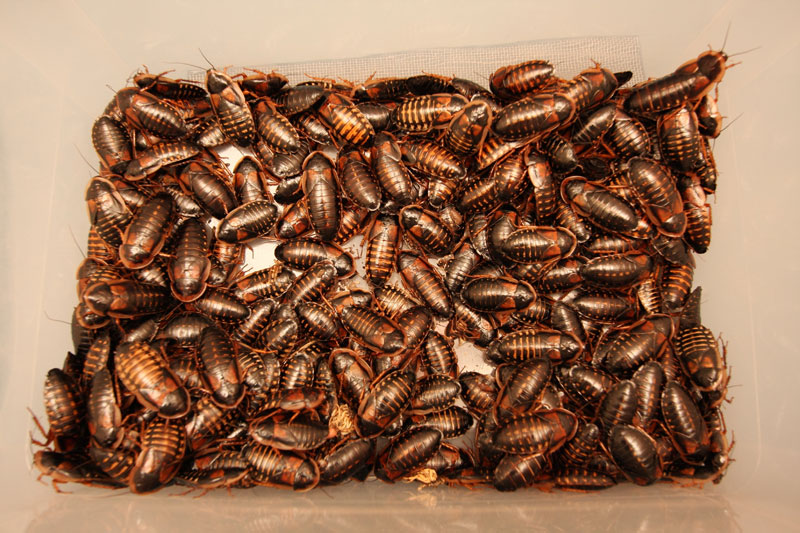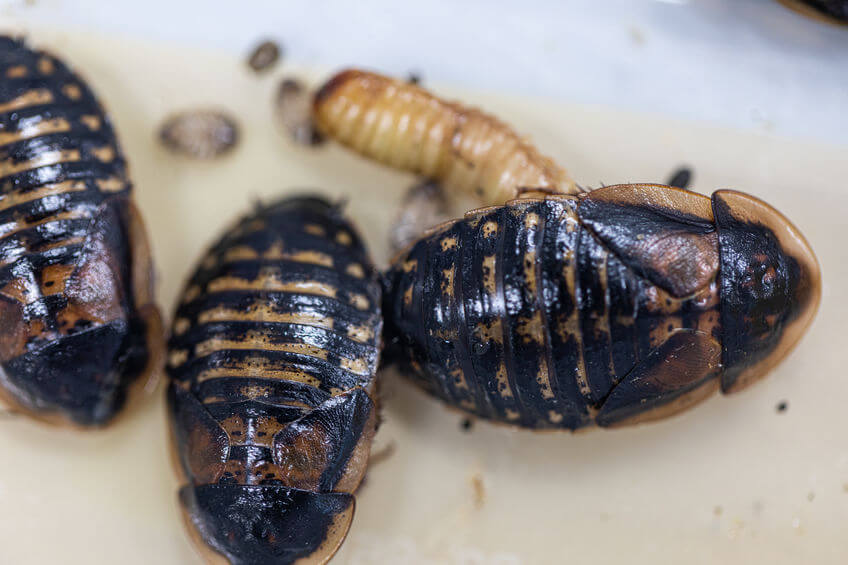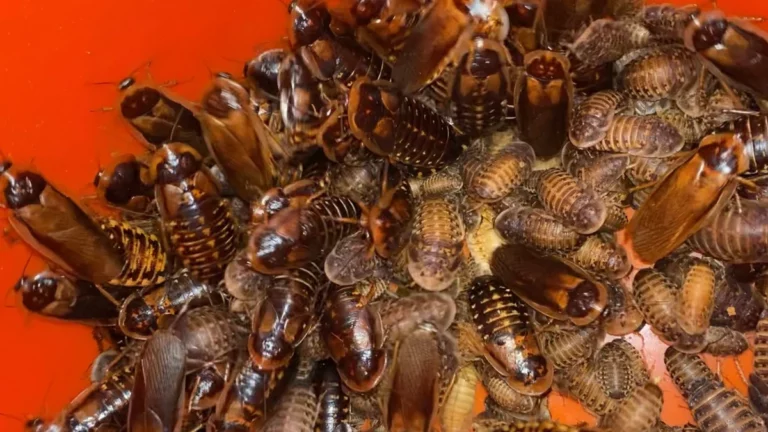Florida The environment in Florida is very suitable for roach survival and reproduction. Dubia roaches, like most insects, can reproduce quite quickly.
However, issues such as Competition with Native Species, Predation on local Insects, Disease Transmission, Impact on Agricultural Crops, Disruption of Ecosystem Services, and Hybridization.
Dubia roaches have gained popularity as feeder insects for pets in recent years, including in Florida. As a result of their easy care, high nutritional value, and non-climbing behavior, it has become a popular choice among pet owners seeking to provide a nutritious diet for their beloved companions.
Here, you will get to know the reason of banned and also the Alternative options for your pet.
Background on Dubia Roaches and why pet owner like them

Dubia roaches, scientifically known as Blaptica dubia, are a species of tropical cockroach native to Central and South America.
However, they have become highly popular in the pet trade industry, particularly among reptile and insectivorous pet owners, due to their nutritional value, ease of care, and inability to fly. Their lazy behavior makes them manageable in captivity, reducing the risk of accidental infestations.
Furthermore, Their rapid reproduction rates make them sustainable and cost-effective feeder insects. They are odorless, quiet, and non-threatening, making them an attractive choice for both pets and their owners.
Additionally, concerns about their potential ecological impacts have led to discussions about their legality in certain regions, including the United States. Despite their widespread popularity, evaluation of their environmental impact is crucial to determine appropriate regulations for their use as feeder insects.
Existing Regulations on Exotic Species in Florida
Prohibited and Restricted Species: Florida’s list of prohibited species includes illegal animals, updated regularly, preventing invasive species from harming native wildlife and habitats.
Permitting and Licensing: FWC permits and licenses are required for individuals and businesses trading exotic species, ensuring compliance also monitoring activities.
Risk Assessment: To reduce the negative effects on the environment, FWC believes that they encourage citizen reporting of invasive species and regulate established populations.
Educational Outreach: To avoid the introduction of invasive species, the FWC supports education on exotic species concerns, proper pet ownership, and public awareness.
Reporting and Control: Further, FWC conducts risk assessments to determine the legality and regulation of introducing and maintaining exotic animals in Florida.
Why are dubia roaches illegal in Florida?
Competition with Native Species: They threaten Florida’s ecosystem by competing with insects for resources, potentially disrupting the delicate balance.
Predation on local Insects: Their high rates of reproduction and omnivorous diet may harm the nearest insect species and biodiversity.
Disease Transmission: When in touch with familiar species, they can spread diseases to Florida ecosystems, which could cause health problems for wildlife and pets.
Impact on Agricultural Crops: They thrive in favorable conditions, potentially becoming pests and damaging agricultural crops or gardens.
Disruption of Ecosystem Services: They affect native flora pollination and decomposition, which has profound implications.
Hybridization: Exotic Dubia roaches may hybridize with particular species, potentially causing genetic pollution and loss of diversity.
Alternatives option for your pet
Even if Dubia roaches are banned where you live, that doesn’t mean your pet can’t benefit from the bugs’ nutrients that are beneficial.
- Australian Roach
- Surinam Roach
- Green Banana Roach
- Horseshoe Crab Roach
- Death’s Head Roach
- Discoid Roach
- Pallid Roach
Possible Pathways of Introduction and Spread

Pet Trade: Dubia roaches are introduced as feeder insects in the pet trade, and if released or subconsciously released, they have the potential to develop uncontrolled communities.
Accidental Escapes: They are capable of escaping from improperly secured containers, surviving in warm, humid circumstances, and potentially reproducing themselves in the wild.
Misidentification: In some cases, they may be accidentally introduced due to misidentification during transport or trade.
Deliberate Release: People intentionally release Dubia roaches into the wild, believing that it enhances the environment or removes undesired insects, posing huge harm to the ecosystem.
Hitchhiking: They can travel long distances by “hitchhiking” on plants, packaging, and transporting goods, potentially introducing them to new areas
Human Transport: Humans may accidentally send those roaches from one location to another via their stuff, their cars, or other ways. Because of this unintentional translocation, they may be released in new environments.
Arguments For and Against the Ban
Firstly, they emphasize the nutritional benefits of these roaches as a highly nutritious and sustainable food source for reptiles and insectivorous pets. The prohibition of them would limit pet owners’ feeding options, possibly leading to not enough food for their animals.
Secondly, they indicate the economic consequences of a ban, expressing concern about how it would affect breeders and businesses that depend significantly on them as a viable source of income.
Finally, opposition to the ban demands a thorough risk assessment to determine the true threat presented by Dubia roaches. They contend that not all non-native species are invasive, and they urge for an individual basis assessment to inform regulatory decisions.
FAQ
Will dubia roaches eat meat?
Yes, Dubia roaches are generalist robbers who will consume a variety of organic materials, including fruits, vegetables, decomposing garbage, and even minute insects or carrion. Despite choosing plant-based diets, they will consume meat if it is offered.
Do dubias need water?
Yes, Hydration. Dubia roaches require some type of wetness, just like all other insects. You can provide them with both water and fresh produce, as well as both, to keep them hydrated. The method you use to give moisture is probably unimportant if you plan to fast-feed the roaches off.
Are dubia roaches toxic to humans?
No, Dubia roaches are generally not toxic to humans. They do not produce venom and are not known to bite or sting.
What happens if a Dubia roach bites you?
Dubia roaches are not aggressive towards humans, and their mouthparts are not designed to inflict harm. If a Dubia roach were to bite, it would likely be more of a defensive reaction and would not cause any serious injury or harm to a person.
Is it safe to touch dubia roaches?
Yes, handling Dubia roaches is normally safe. They do not pose a threat to humans and do not harbor any illnesses that may be passed on to people.
Where Are Dubia Roaches Illegal?
Dubia roaches are illegal in Florida, Hawaii, and Canada. You cannot import or keep them in these states.
Conclusion
All things considered, they are banned because of their super fast reproduction system, Competition with Native Species, Disruption of Ecosystem Services, and Hybridization. Moreover, If you still face the problem you check all the other alternative options which are mentioned above. The best one is Australian Roach
On the other hand, Banning Dubia roaches may mitigate environmental risks but limit reptiles’ dietary options and livelihoods. A comprehensive risk assessment helps inform regulatory decisions.

